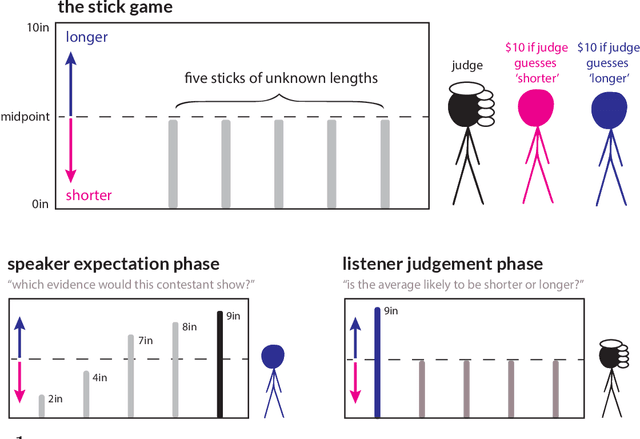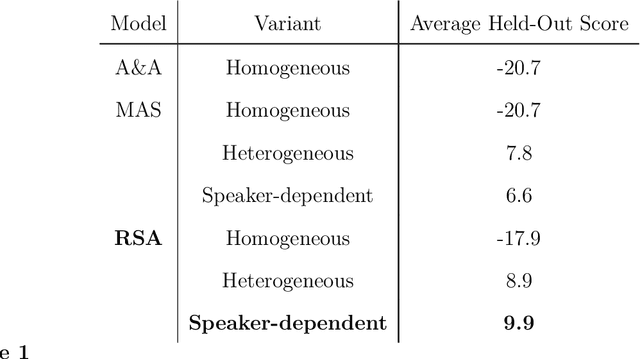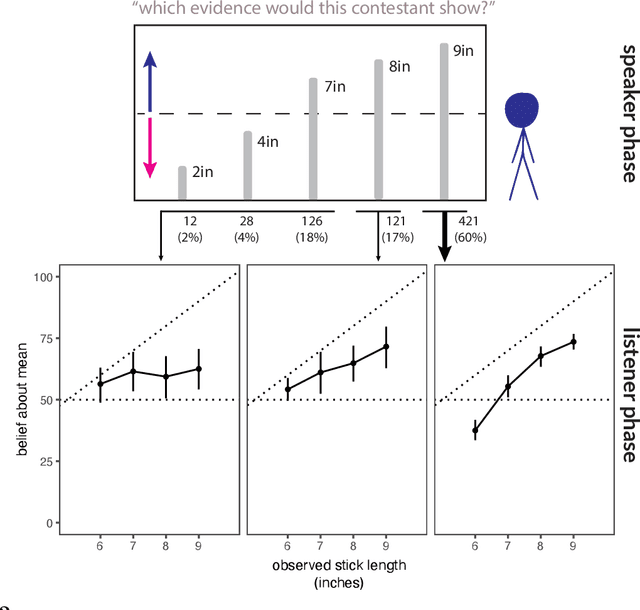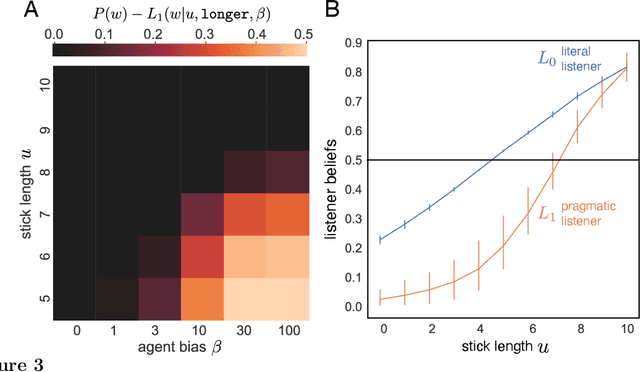Samuel A. Barnett
A pragmatic account of the weak evidence effect
Dec 07, 2021



Abstract:Language is not only used to inform. We often seek to persuade by arguing in favor of a particular view. Persuasion raises a number of challenges for classical accounts of belief updating, as information cannot be taken at face value. How should listeners account for a speaker's "hidden agenda" when incorporating new information? Here, we extend recent probabilistic models of recursive social reasoning to allow for persuasive goals and show that our model provides a new pragmatic explanation for why weakly favorable arguments may backfire, a phenomenon known as the weak evidence effect. Critically, our model predicts a relationship between belief updating and speaker expectations: weak evidence should only backfire when speakers are expected to act under persuasive goals, implying the absence of stronger evidence. We introduce a simple experimental paradigm called the Stick Contest to measure the extent to which the weak evidence effect depends on speaker expectations, and show that a pragmatic listener model accounts for the empirical data better than alternative models. Our findings suggest potential avenues for rational models of social reasoning to further illuminate decision-making phenomena.
Convergence Problems with Generative Adversarial Networks (GANs)
Jun 29, 2018



Abstract:Generative adversarial networks (GANs) are a novel approach to generative modelling, a task whose goal it is to learn a distribution of real data points. They have often proved difficult to train: GANs are unlike many techniques in machine learning, in that they are best described as a two-player game between a discriminator and generator. This has yielded both unreliability in the training process, and a general lack of understanding as to how GANs converge, and if so, to what. The purpose of this dissertation is to provide an account of the theory of GANs suitable for the mathematician, highlighting both positive and negative results. This involves identifying the problems when training GANs, and how topological and game-theoretic perspectives of GANs have contributed to our understanding and improved our techniques in recent years.
 Add to Chrome
Add to Chrome Add to Firefox
Add to Firefox Add to Edge
Add to Edge